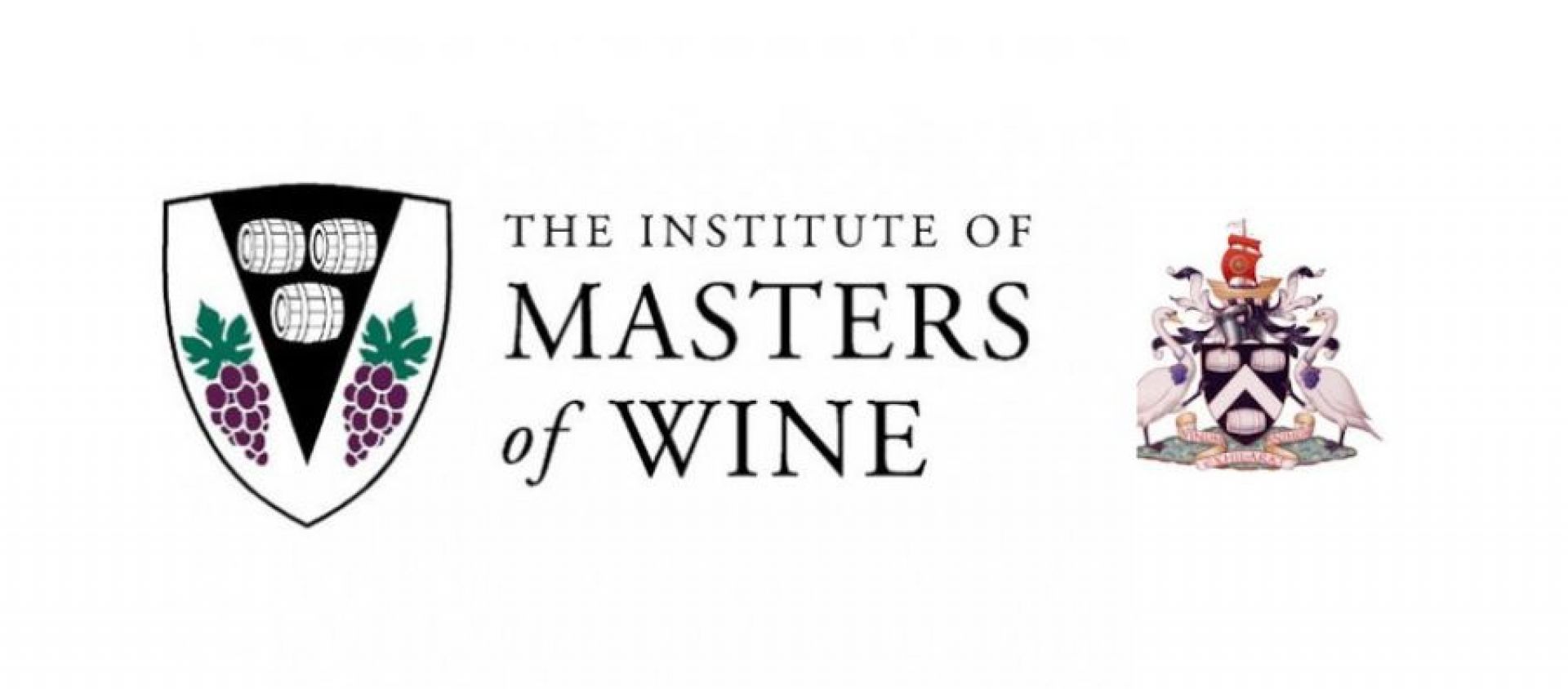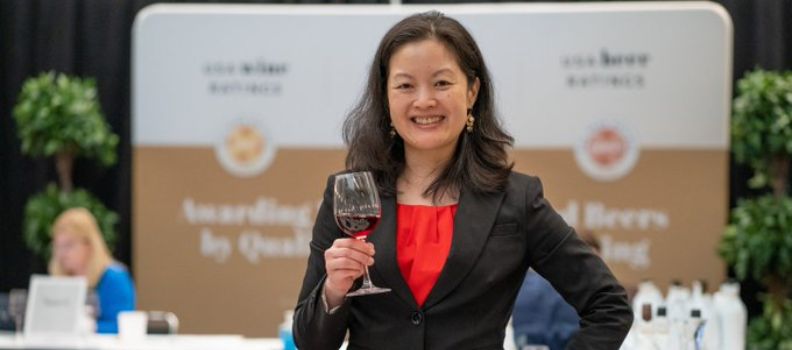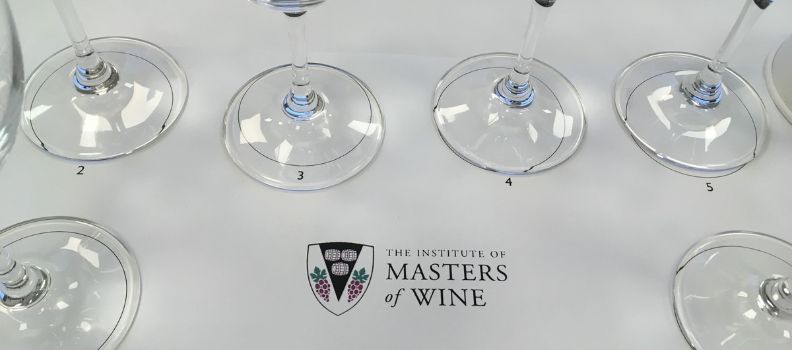
Insights
How to become a Master of Wine
The complete guide on what you need to know.
The Master of Wine has been around since 1953 and it only gets more challenging by the year. This is all you need to know before you decide to go down the rabbit hole.
Institute of Master of Wine
For those of you unfamiliar with the concept, the Master of Wine program is the pinnacle of accreditation offered by the Institute of Master of Wine, a membership organization in the United Kingdom. This is perhaps the most coveted program, with the goal of encouraging excellence, participation, and education in all aspects of the global wine community. Needless to say, this is one of the most challenging of the lot.

Image: Susan R Lin; Image Source: usawineratings.com
Through Susan’s Eyes
Susan R Lin is a Master of Wine who has dabbled in various industries from hi-tech to arts among other things. She is a talented individual who has an academic mindset and the discipline to achieve anything she puts her mind to. She owes the origin of her passion for wine to her grandfather who got her intrigued at a very young age. Lin has tackled the undulated paths and emerged a Master of Wine 5 years into her enrollment. She is the Head of Wine Expertise at Belmont Wine Exchange and curates wine portfolios, creates wine programs, assesses wines, and specializes in wine and spirits music pairings and gatherings as a consultant. She believes this title is more than just one or two things. It is a holistic approach that involves an amalgamation of various aspects of the wine industry and wine community, in order to make it a better place.
Who is an MW?
Susan explains, “A Master of wine is an individual who has passed a rigorous 3 part multi-year exam that tests the candidate’s knowledge in breadth and depth in the art, the science and business of wine. All parts of the wine world.” It is for people who want to gain a broader perspective of the wine world. The program constitutes not only the beverage side of things and how wine tastes but what went behind the making of a particular wine. One learns about the production methods and the chemistry behind making the wine. The program also educates you on everything about terroir across the globe and the science behind grapevine cultivation, the business behind wine, sales, marketing, and trade. So, technically you’re going to learn it all. Hence, Master.
Who can apply
The traditional route of completing 4 levels of WSET was most common amongst most MWs. Now, there are other ways as well that are being adopted by prospective candidates. Susan states, “I thought it was somewhat akin to applying for a graduate program.” Prior to enrolling, students must have a high-level degree or a diploma in the field of wine. An equivalent of a higher degree like Advanced Sommelier from the Court of Masters Sommelier also applies.
[[relatedPurchasesItems-46]]
How to get in
Interested candidates must also submit a testing paper and a letter of recommendation from other Masters of wine or wine professionals who are well known in the business. There is an essay submission, and a letter of intent as well where they explain their interest in joining the program. It is also imperative that enrolling students hold at least 3 years of experience in the global wine community. Upon submitting all the documents asked, one must also write a highly monitored entrance exam.
That is just the tip of the iceberg. Fun!
The Program Structure
Upon admission, the real grind begins. The learning initially is done online and through mostly self-learning, sprinkled with seminars that are conducted in different parts of the world. The program is divided into 3 stages consisting of theoretical classes, practical sessions, and a dissertation. Classes are held twice a year in various parts of the world. “Thankfully for those of us in California, there is one in Napa or San Francisco, then there is one in Australasia, maybe in Adelaide, and then there’s one usually in London or in Bordeaux; in Rust, Austria. It changes throughout the years.” Candidates have course days which are conducted twice a year for maybe 2 or 3 days which are usually taught locally through tutorials.

Image Source: Wine and Food Foundation
The Stages
The course is divided into 3 parts. Stage 1 is a written exam that determines the candidates’ will in truly wanting to excel at the program. It is a 5-day residential seminar and 4 days of the non-residential course day. It consists of 6 papers covering all aspects of the wine industry. That is not all. The exam is a 2-part component with two written essays and 12 wine blind tastings that needs to be crossed out, passing which you may proceed to the real MW Exams. Yes, the real one. A candidate must complete the stage within 2 years of commencing the program. When Susan advanced to Stage 2 of the exam, she claims it made stage 1 look like “less than child’s play.”
Stage 2 involves a 9-day session with seminars and course days where candidates undergo extensive blind tasting of 3 batches of 12 wines each. There is also an assessment on viticulture, vinification and pre-bottling procedures, the handling of wine, the business of wine, and contemporary issues which must be submitted in the first year of enrollment prior to the exam. Stage 2 is given a time period of 6 years to complete. One must have passed both stages in order to get to the third.
The final stage is a dissertation of the candidate’s choice with 6000 to 10000 words which is given 5 years to complete. Susan chose to combine her passion for music with her undying passion for wine with the topic, “Influences of classical music on the perception of a brut NV Champagne.” Through workshops on how to get better at proposing your research or writing it, candidates must do the rest on their own. Topics must resonate with the wine community in the long term and contribute to the betterment of the wine world.
Careers
This MW recalls, “The opportunities happened immediately. They came in immediately”. She received calls from people for wine panel expertise, judging, and giving talks on champagne, and classical music. There are many career paths one may choose after becoming a Master of wine. The Professionals are merely by the hundreds but the demand is ten folds greater. Opportunities come knocking at your door almost immediately after the Masters of Wine are announced. You might be asked to inspect some of the world's greatest private wine cellars, speak at wine seminars and conduct courses, conduct tastings, and advise on the cellars of governments and heads of state.
If you think you have the passion and the zeal to give it your all in becoming proficient in wine, only then opt for the program. Know that it isn’t ‘child’s play but the hard work pays off and it will all be worth it. From the looks of it, it feels like this program is an extremely fulfilling one, provided you stay in your lane, remain disciplined, and when life puts you down, find the courage to pull yourself back up and keep moving forward.
Wine aspirants who are contemplating whether or not to take up the Master of Wine program; Susan suggests that you take it up anyway and explore to see if this journey is for you and that it is okay if you choose otherwise. “I am a lifelong student. Becoming a Master of Wine hasn’t stopped me from researching and learning. I will do it forever”. Her passion resonates in her words. Spoken like a true Master of Wine.
Learn more about Susan by watching this video with Sid Patel, CEO of Beverage Trade Network where they take a deep dive into the Master of Wine program and how it helped her.
Become a USATT exhibitor and grow your distribution in the USA. Meet importers, distributors, retailers and press. Get exhibitor information here.


